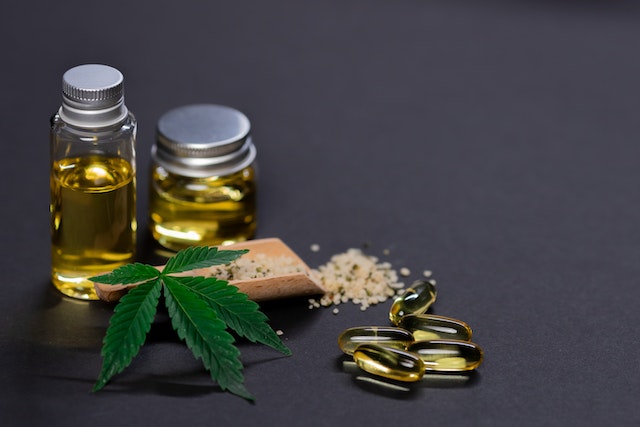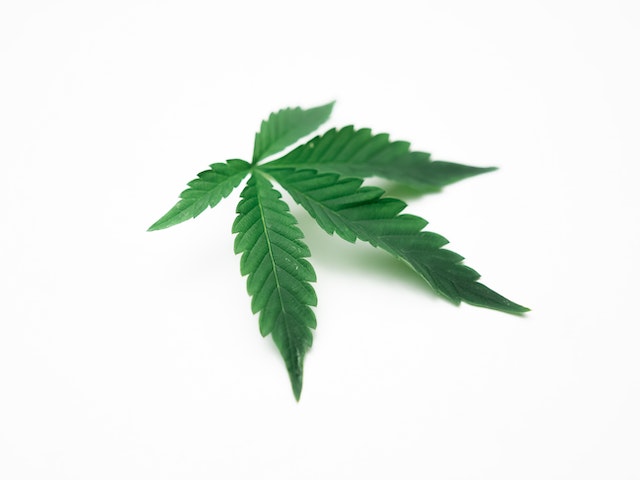What is CBD oil? Discover the effects of CBD oil
CBD oil, or cannabidiol, has gained tremendous popularity in recent years. Many people have become interested in the potential benefits this substance can offer.
In this blog, we will discuss not only the popularity of CBD, but also how CBD oil is produced so you can get a better idea of the manufacturing process. A question that concerns many people is the legality of CBD. Therefore, we will also discuss the current legislation in this area.
In short, after reading this blog, you will have a better understanding of CBD and its main aspects.
What is CBD Oil?
CBD oil, in full cannabidiol oil, is a natural dietary supplement extracted from the hemp plant. It is one of the many cannabinoids found in cannabis. CBD is known for its potential therapeutic properties and is becoming increasingly popular for its potential health benefits.
CBD products are extracted from the hemp plant through various extraction methods, such as CO2 extraction or solvent extraction. The result is a concentrated oil with a high content of CBD and other compounds present, such as terpenes, flavonoids and other cannabinoids.
CBD and THC (tetrahydrocannabinol) are two of the best known cannabinoids that affect the endocannabinoid system, but they have different effects. THC is the psychoactive compound responsible for the “high” associated with cannabis use. Unlike THC, CBD has no psychoactive component, meaning it does not produce intoxicating effects.
Because of its lack of psychoactive effects, CBD oil is often used as a natural supplement for general wellness. It is praised for its potential anti-inflammatory, pain relieving, anxiety reducing and sleep promoting properties. However, it is important to note that laws and regulations regarding CBD oil can vary between countries and it is always wise to seek advice.
How is CBD made?
CBD oil is made by extracting cannabidiol (CBD) from the hemp plant. There are several methods for extracting CBD oil, each of which can affect the quality of the final product.
The most common method is CO2 extraction. In this method, liquid CO2 is used as a solvent to extract the CBD from the hemp plant. The CO2 is put under high pressure and low temperatures, giving it the properties of both a gas and a liquid.
The CO2 pulls the CBD from the plant, then it is separated from the solvent. CO2 extraction is known for its safety and maintaining the quality of the CBD, as it leaves no harmful solvent residue.
Another method is alcohol extraction. This involves soaking the hemp in alcohol, which dissolves the CBD and other compounds. The alcohol is then evaporated, leaving a thick, syrupy substance. Although alcohol extraction is effective, it can leave residues of the solvent if not thoroughly evaporated.
A third method is olive oil extraction. This involves heating the hemp in olive oil, which extracts the CBD. This method is simple and safe, but the resulting oil generally has a limited shelf life and may be less concentrated.
The extraction method affects the quality of CBD oil. CO2 extraction is considered the most reliable method because it leaves no harmful residues and provides a pure, concentrated CBD oil. Alcohol extraction can potentially contain residues, while olive oil extraction produces less concentrated CBD oil.

What are the benefits of CBD?
What does CBD actually do? Many people use CBD oil to supplement their well-being and report various benefits. Although most claims are currently based on anecdotal evidence, there are some scientific studies that support these benefits.
For example, some studies suggest that CBD can help reduce anxiety and stress. A study conducted in 2019 found that CBD significantly reduced symptoms of social anxiety disorder. In addition, CBD oil may also potentially help relieve pain and inflammation. Studies have shown that CBD has anti-inflammatory and analgesic properties.
In summary, while CBD holds promise and may offer such potential benefits as reducing anxiety, relieving chronic pain and treating epilepsy, it is important to remember that scientific research is needed to support these claims, and to determine the proper dosage of CBD and its uses. It is also important to determine the potential negative effects and side effects of CBD.
Is CBD Oil legal?
Practically speaking, almost all CBD products sold in the Netherlands are illegal. While limited action is taken against it, since monitoring CBD is not a priority.
CBD is extracted from a type of hemp called fiber hemp, which is closely related to cannabis (marijuana). In the Netherlands, it is legal to grow fiber hemp for the seeds and fiber, but not for CBD. CBD is mixed with oil and marketed. However, according to the Opium Act, only the cultivation of fiber hemp for fiber and seed production is allowed, not for CBD.
Therefore, it can be concluded that all CBD products that are of plant origin are in fact prohibited in the Netherlands. Thus, CBD is not sold at The Border.
Should you use CBD or not?
CBD oil seems to offer multiple benefits, such as sedation and pain relief, yet more research is needed to determine this. It is important to note that CBD is officially illegal since it comes from fiber hemp. Therefore, it is not available at our coffee shop The Border.
However, if you are looking for a quality joint, you can of course visit us. Our coffeeshop is located in a beautiful location on the edge of the Amsterdamse Bos.



